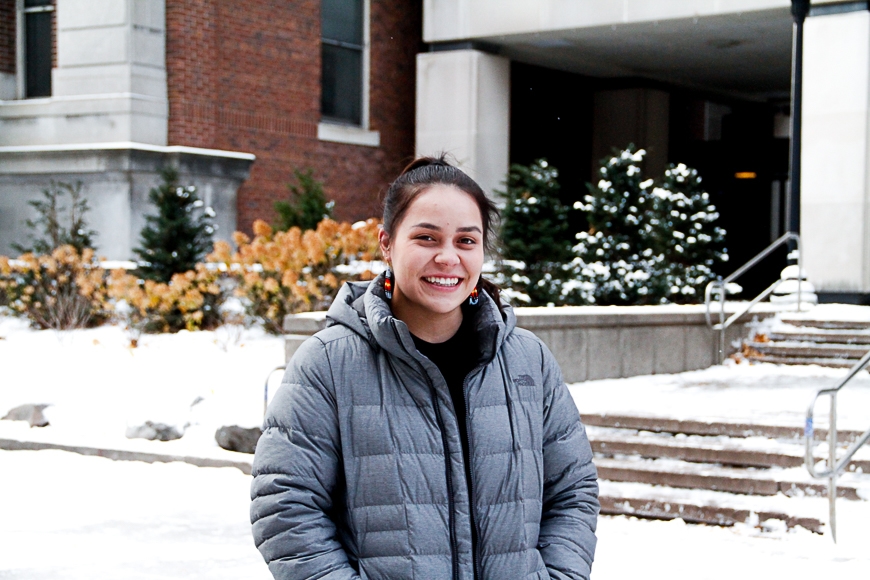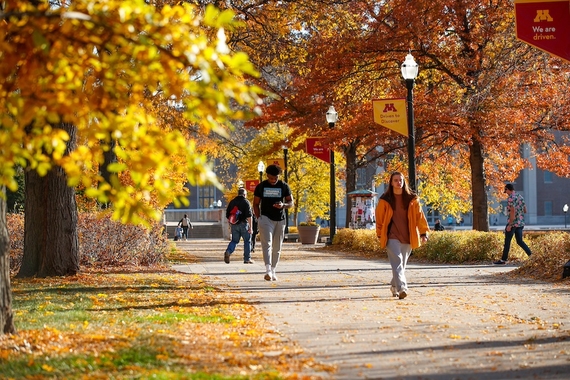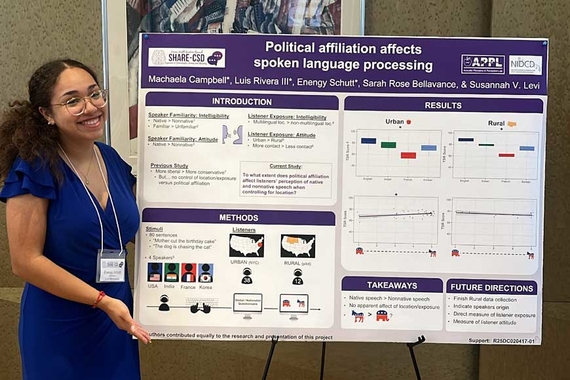Major Potential
Payton Counts came into the College of Liberal Arts like many first-year students: a little unsure. “I originally thought about psychology, but I wasn’t really sure what I wanted to do or what I wanted to be.”
She had interests in American Sign Language (ASL), American Indian studies, and psychology, but she wasn’t sure how to move forward. That’s when she made an appointment with a CLA advisor, who suggested speech-language-hearing sciences (SLHS) based on Counts’ interests.
Now a 2018 graduate from the University, Counts is shattering expectations of what it means to be an SLHS graduate by doing valuable community action work in a field not always chosen by SLHS majors.
Finding Her Own Path
Graduates of the SLHS program normally diverge into speech pathology or audiology. Speech pathology focuses on the research and treatment of speech and language problems. Audiology, on the other hand, is concerned with hearing and balance problems. “A lot of classes are speech pathology-based and there’s maybe a few that are audiology-based. And along with that, a lot of people in the major are more than likely going to go into speech pathology for their education,” Counts says. Counts herself had planned on going into audiology.
During her senior year, she went to an American Indian Science and Engineering Society National conference to discuss higher education and graduate school. There, a speaker changed her whole perspective. According to Counts, the speaker said that it’s of the utmost importance to choose something you’re passionate about when pursuing higher education. That statement stuck with her, as she had been having trouble deciding what she wanted to do after graduation. “I started thinking about what I was actually passionate about, and I realized that I really do want to be a psychologist!”
In her senior year and now certain of what she wanted to do, Counts reached out to a faculty member from the psychology department whom she had met her first year and a graduate student who had become a mentor to her. Through them, she learned of a job at the Indigenous Peoples Task Force (IPTF).
Out in the Workforce
“Originally, I thought, I don’t know, I don’t have the credentials for this job,” Counts remembers. “I applied, went, and interviewed...and they called me back to offer the position!” Through SLHS and her liberal arts degree, Counts had built competencies in applied problem solving, engaging diversity, teamwork and leadership, and active citizenship and community—not to mention career management. All of these competencies prepared her for success at IPTF.
She began working in January 2018 as a “navigator” for the Keep the Fire Alive program, a sector of IPTF dedicated to suicide and substance abuse prevention among native youth in the Twin Cities. In this role she runs two advisory councils, one comprised of Native youth and the other of community members.
Through outreach and community surveys, Counts and her team work to gauge the community’s knowledge of the resources available to its youth, otherwise known as a readiness score.
“We found that the readiness score is pretty low, which is to be expected. One of the main things we do is educating the community. What we’re trying to do is build up that awareness and knowledge...helping people see that the link is there,” Counts says. By working alongside members of the community, they make suicide prevention resources available to as many native youths as possible.
Keep the Fire Alive focuses heavily on providing cultural protectors, such as making drums, singing songs, and offering tobacco to strengthen ties between community and culture. She says her role in this organization has opened her eyes to aspects of her CLA degree that she hadn’t noticed before.
“With CLA, it’s so diverse. You get such a well-rounded education and I think people kind of take it for granted. CLA just does such an awesome job of giving you all of those diverse classes...It plays out more than I thought it would.” All of the classes Counts took, speech pathology or not, gave her valuable skills for the workforce.
Learning for Life
The College of Liberal Arts always encouraged Counts to pursue her many overlapping interests. Now that her focus has shifted from speech-language-hearing sciences to psychology, Counts will return to school after a two-year break. During that time, she hopes to continue working at the NICE (Narrative, Identity, Culture, Education) Lab on campus or get more research experience before PhD applications. She will also continue her work with IPTF, which has established new goals for the community based on its readiness scores.
SLHS gave her a strong foundation for any graduate program, and Counts sees her degree as a blessing. “Even though I’m not using my degree in the way I imagined I would, I wouldn’t have gotten my job had I not had it. The degree unexpectedly gave me this amazing opportunity that I otherwise would not have had, and I get to work in a great community doing work that I love.”
This story was written by an undergraduate student content creator in CLAgency. Meet the team.



